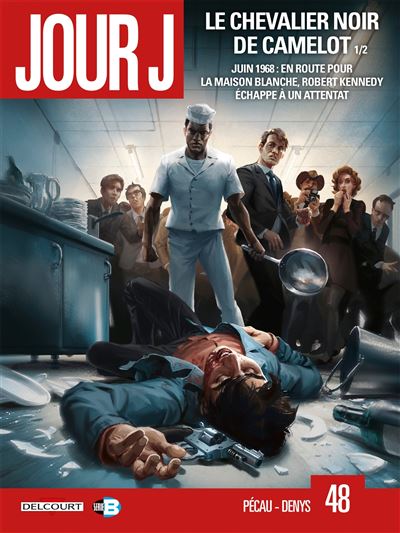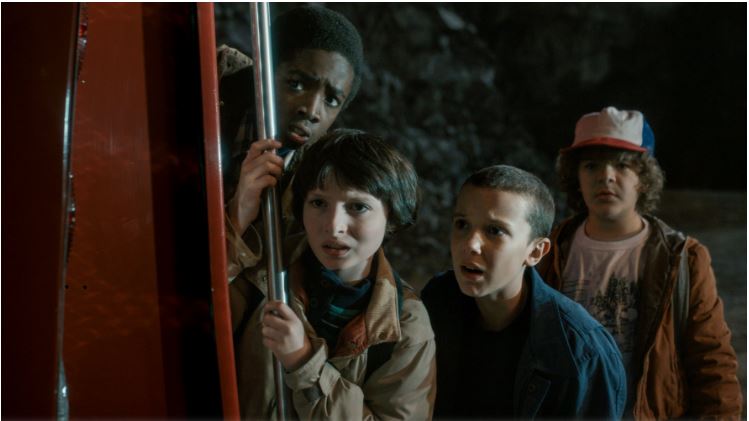The strength of male friendship is a recurring theme in the films, but are long-time friends always a support? This is the question asked by Thomas Cadène, Joseph Safieddine and Clément C. Fabre in BFF published by Delcourt but the answer may surprise you…
Double-life
In BFF, we follow a group of friends preparing the wedding of two of its members, Oscar and Claire. They have all known each other since childhood. Screenwriters Thomas Cadène and Joseph Safieddine initially focused on the most discreet: Gro is a classical pianist who tries to (survive) from his art. For years, he has lived in a seedy studio. A sensitive personality, he is overtaken by the other men in the group, who are more charismatic.
But very quickly, the reader of BFF (for Best Friends Forever) discovers that Gro leads a double life. He secretly sends text messages. If he rents a tiny and untidy studio, he also owns a huge luxurious apartment maintained by a housekeeper. Indeed, Gro is a pianist known all over the world. He tours the world in the biggest halls. This double life has consequences on his psychology. He is also obliged to refuse any offer to play. This double life is cracked by hazardous encounters over the chapters of BFF. His family knows everything but he lies to his friends. What to do when Claire asks him to play for his wedding?
For his friends
Forgetting to live his own life, Gro is always there for his friends. He sees them every day and regularly checks on them. Far from being BFFs, these people seem unbearable to us. Baptiste devalues Gro and even his bed. Oscar is a selfish monster thinking only of himself. Neither of them ever listens to Gro. This group gathers abusive friends. Each new member does not hold and Gro is not the only one to suffer. However, BFFbecomes very strong in showing that this situation is even more complex. Olivier is not the only one to hide a more complex inner life. Like Gro, everyone's flaws are becoming more and more visible. This mountain of lies creates tension: when will the truth come out or rather which lie will come out first? What will become of this group next?
All this skein could not hold without the learned structure of Thomas Cadène and Joseph Safieddine. Lying becomes a tool to create human characters. BFF starts from a simple and then more complex individual portrait and then builds a mosaic of double characters. The writers know how to portray characters in a few words and leave us with many questions. They are admirably helped by the draftsman and colorist, Clément C. Fabre. The small characters and apartment scenes create an intimacy with the reader or even a claustrophobia. Its clear line style is elegantly highlighted by a very fine inking. The limited chromatic range moves away from a natural colorization and the bubbles change colors according to the interlocutor.
BFF offers you an original vision of friendship. The two writers get out of the stereotype of friends who support each other to offer complex and real slices of life. This book also makes us think about the image we give in society. Even with your closest friends, you are never yourself. We are at best what we want to show and at worst what others impose on us. BFF won't let you go even after the last page is done.
You can find on JustFocus a chronicle of War by the same screenwriter and Radiant Black giving another image of friendship.










































